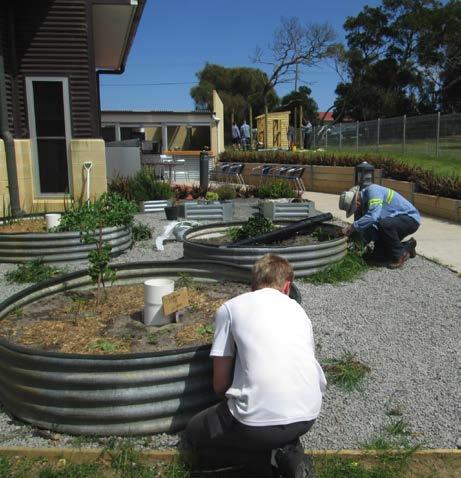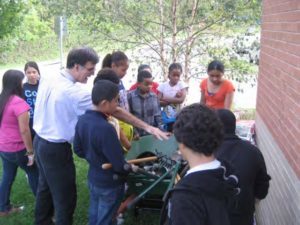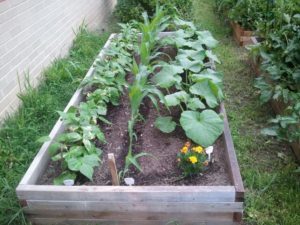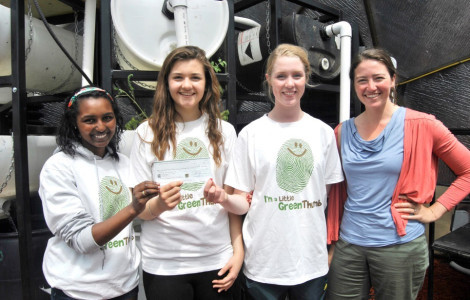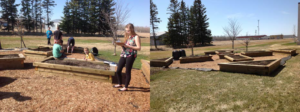2015 Virden, Manitoba, Canada
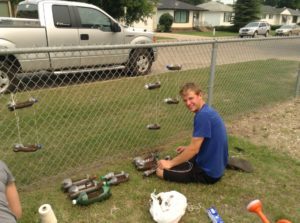
At Virden Collegiate Institute, students Ethan and Jake, were concerned about flooding in the area. A flood impacted the town of Virden in 2014 wiping out the school’s learning garden and the town’s community gardens. In re-building the learning garden, Ethan and Jake considered going vertical, a sure way to protect plants from rising waters.
“This would benefit the watershed in many ways such as the aesthetic, direct economic, indirect economic, and scientific values. The scientific values allow for the garden to be studied by the Biology class, while the indirect economic values contribute to a reduction in carbon dioxide.”
Thanks to a contribution from Nutrien, Ethan and Jake have created a wall of miniature gardens, using pop bottles. This new face of gardening demonstrates how we can re-think new uses for old things; recycling pop bottles is a great way to start such a unique project!
